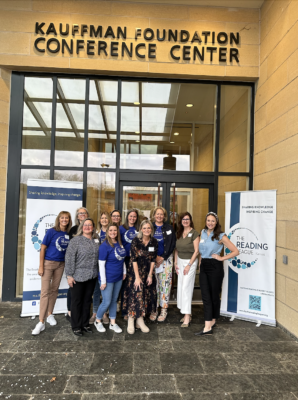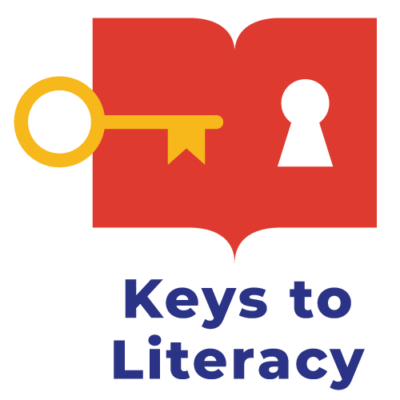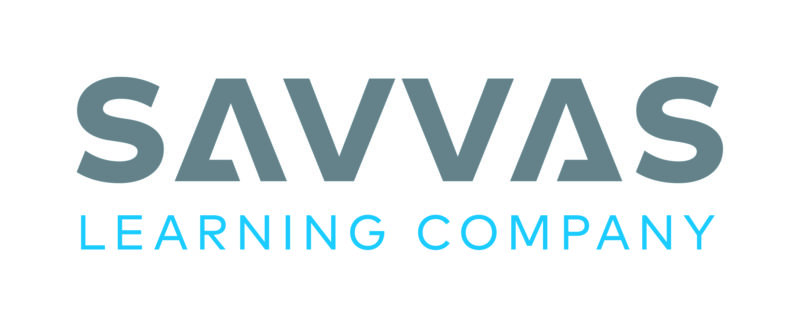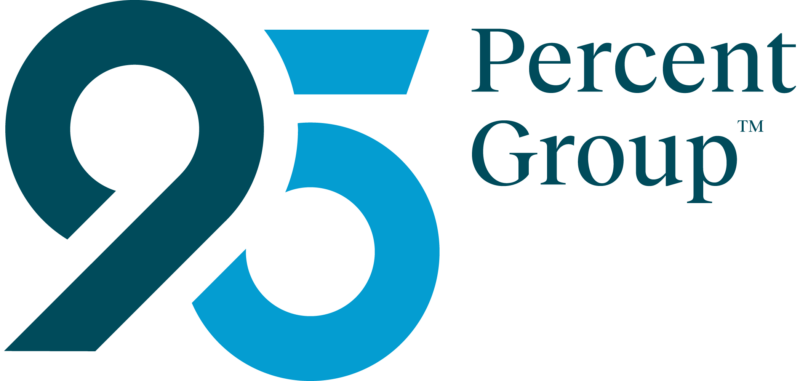On behalf of The Reading League Missouri and The Reading League Kansas, we’d like to welcome you to Elevating Literacy: Advancing Evidence into Practice, a premier conference designed to empower educators, researchers, parents, and advocates with the latest in evidence-based literacy practices. Join us as we bring together passionate individuals committed to transforming literacy education, sharing insights, and advancing research-aligned strategies that make a real difference in classrooms. This hub will provide everything you need to know about the conference, including schedules, speaker highlights, and registration details. Whether you’re an attendee or simply exploring, we hope this resource fuels your journey to improve literacy outcomes for all. For any questions, please reach out to us at info@mo.thereadingleague.org.

Elevating Literacy: Advancing Evidence into Practice
Friday, March 7, 2025
VENUE UPDATE: Marriott Hotel Downtown
200 W 12th St, Kansas City, MO 64105
The entrance at 1213 Wyandotte Street (East Tower) is closest to public parking and will be unlocked for event access.
Elevating Literacy 2025 is SOLD OUT!
For hotel reservations, visit https://www.hilton.com/en/attend-my-event/mkchshx-924-f4901fd8-d993-4375-a33d-df1f3c6d8e1b/
Looking to earn college credit for attending Elevating Literacy? Learn more here.

Conference Schedule:
7:45-8:15 Registration & Breakfast
8:15-8:30 Welcome & Introductions
8:30-9:30 Keynote Session
9:40-10:40 Breakout Session #1
10:50-11:50 Breakout Session #2
11:50-12:35 Lunch
12:45-1:45 Breakout Session #3
1:55-2:55 Breakout Session #4
3:05-4:05 Breakout Session #5
4:15-4:30 Reflections & Closing
Keynote Speaker
Conducting a Literacy Symphony: Evidence-Based Practices in Harmony

Kari Kurto is the National Science of Reading Project Director at The Reading League. She directs all work related to The Reading League Compass, the Curriculum Evaluation Guidelines, and the Curriculum Navigation Reports. She also leads work to support English Learners and Emergent Bilingual students and runs several communities of practice. Kari is a Path Forward advisory group member and has presented to schools, districts, professional organizations, and state education departments, and she also works as an adjunct professor at Rhode Island College. She formerly worked as a Literacy Specialist at the Rhode Island Department of Education, leading statewide efforts to implement the Rhode Island Right to Read Act. Kari is an Orton Gillingham practitioner who worked at Middlebridge School in Narragansett, Rhode Island, and Rawson Saunders School in Austin, Texas. Before her career in education, Kari worked as a Casting Director in Los Angeles. She and her three wonderful children live in southern Rhode Island.
Breakout Session Information
Proactive Prevention: Leveraging MTSS and Effective Tier I Instruction to Address Reading Challenges Early
Presented by: Dr. Karyn Tomkinson and Jean Wright
This session focuses on how MTSS and the structured literacy framework work together as a proactive, research-based approach to effectively support students’ reading needs across Tier I, II, and III instruction. What Attendees Will Leave Knowing: Attendees will leave with a clear understanding of best practices for each MTSS tier, the role of data in identifying specific reading needs, and how the structured literacy framework addresses the Big Five in reading: phonemic awareness, phonics, fluency, vocabulary, and comprehension. They will also gain strategies to accelerate student learning and promote lasting literacy outcomes through adaptable, tiered support.
Building a Solid Literacy Infrastructure to Improve Outcomes for All Students
Presented by: Dr. Cindy Hadicke
This session by the AIM Institute emphasizes building a comprehensive literacy infrastructure to improve student outcomes. It highlights the interconnected elements necessary for success: knowledgeable educators, curriculum, multi-tiered support systems, leadership, and enabling contexts. The presentation integrates principles of implementation science to ensure fidelity, focusing on structured literacy, effective coaching models, and high-quality instructional materials (HQIM). Leadership plays a key role through data analysis, literacy walkthroughs, and job-embedded professional learning. Mississippi’s Literacy Coaching Model and MTSS frameworks are presented as exemplars for structured support and intervention in reading instruction.
Supporting Students with Understanding Text-based Problems in Math: Teaching Math Words!
Presented by: Dr. Elizabeth Stevens and Natalie Patton
Many students with reading difficulty have co-occurring math difficulty (Koponen et al., 2018). Students are expected to read, understand, and solve text-based problems to demonstrate their mathematics proficiency. Unfortunately, many students have difficulty understanding the complex vocabulary in math, including technical terms (e.g., numerator, quadrilateral), subtechnical terms with multiple meanings (e.g., product, difference), symbolic terms (e.g., plus, times) and general terms (e.g., sort, justify). Providing teachers with usable, feasible routines for teaching math vocabulary is important to support students with reading and understanding text-based problems. Attendees will learn how to explicitly teach math words using a vocabulary map routine. We will provide sample vocabulary maps, model the routine, and provide teachers with a digital vocabulary map they can use in the future. This session provides a step-by-step routine for teaching mathematics vocabulary. Teachers will learn how to: select words to teach, create a math vocabulary word map, and explicitly teach math words using the map. Teachers will also have opportunities to practice and receive resources to implement instruction in their classrooms immediately.
Evaluating for Dyslexia and Monitoring Intervention Progress
Presented by: Thomas Hurford and Megan M. Loudermilk
A comprehensive evaluation for dyslexia includes an assessment of reading and spelling, a test of attention, ratings of social-emotional behavior, and a hearing screening. We will describe how test data is used with additional evaluation components, including review of records, team member input, and behavioral observations within an instruction-curriculum-environment-learner lens (ICEL-RIOT; Christ, 2008). Finally, we will demonstrate how to use the Science of Reading and student data to inform goals and services for students with reading disabilities (Hurford, 2023). Presenters will discuss innovative strategies for developing high-quality programs with strategic goals and services to better support students with dyslexia and other reading disabilities. The importance of high-quality progress monitoring will be presented.
Literacy for ALL: It’s Possible!
Presented by: Angela Hanlin
The role of teacher goes far beyond educational content and providing instruction. There are attitudes, values, and beliefs that can greatly increase student achievement. “All means all,” is a popular phrase right now, but what are the specific actions that teachers can take to truly impact ALL learners? This session will guide teachers in developing the most effective professional dispositions to impact student learning and ensure literacy for all learners.
Session participants will leave with evidence-based strategies for how to demonstrate high expectations for ALL students, use instructional strategies to challenge learning levels of all students, and how to value the assets that all students bring to the learning environment. Participants will also learn the most effective practices for teacher growth and professional collaboration. Literacy for ALL is Possible! This session outlines the professional dispositions and practices that teachers must develop to ensure Literacy for ALL! Participants will walk away knowing specific actions and evidence-based strategies they can implement to impact all learners, continually improve teaching performance, and transform their learning environment.
Don’t Forget Your ABCs!
Presented by: Leah DeYoung
In this hands-on session, we will explore creative, research-based strategies for teaching the alphabet to young learners, focusing on multisensory approaches that engage students through sight, sound, and movement. Participants will gain practical insights into integrating visual aids, tactile materials, and interactive games to support letter recognition, sound associations, and early phonemic awareness. Teachers will walk away with a toolkit of ready-to-use activities to reinforce letter learning in a fun, engaging way. This session aligns with early literacy development, emphasizing differentiated instruction to support diverse learning needs. Participants will collaborate in small groups to brainstorm and adapt ideas for their classrooms, ensuring immediate classroom or home application.
Recent Reading Research Around Phonemic Awareness
Presented by: Abby Seymour and Julie Stevenson
In this session, participants will explore the latest research highlighting phonemic awareness instruction and underscoring best practices for teaching phonemic awareness. This aligns with the conference topic of phonemic awareness and phonology within structured literacy instruction.
Participants will reflect on classroom applications and discuss current phonemic awareness instructional practices as well as possible shifts to support student progress. Additionally, participants will engage in phonemic awareness activities that reflect research findings, such as brief focused instruction, highlighting the importance of connecting sounds to print. Overall the session will equip educators with evidence-based techniques to strengthen phonemic awareness instruction, fostering a critical step toward building fluent, confident readers.
Supporting Struggling Readers with Assistive Technology
Presented by: Tiffany Jenkins
Assistive technology plays a vital role in enhancing the reading experiences of students with dyslexia and other reading difficulties. By incorporating tools like text-to-speech software, audiobooks, and speech-to-text applications, educators and families can foster a more inclusive and supportive learning environment. These technologies not only improve accessibility but also empower students to interact with texts at their own pace, nurturing a love for learning. When combined with targeted reading interventions, assistive technology allows for personalized instruction that caters to individual strengths and needs. This presentation aims to enhance educators’ understanding of various assistive technologies and dispel common myths about their use in schools. Collaboration among educators and families is essential to ensure every student flourishes as a capable and enthusiastic reader and writer.
Solving Word Problems: Unleashing the Power of Math and Reading!
Presented by: Natalie Patton and Dr. Elizabeth Stevens
Students are expected to solve word problems at every grade level and language comprehension is a strong predictor of performance (Fuchs et al., 2015; 2018). Teachers express concerns regarding students’ ability to understand the language presented in word problems which impacts their ability to perform the mathematics operations necessary for solving. These text-based problems combine reading and mathematics, increasing the complexity of the task especially for students with comorbid reading and mathematics difficulties. One way to support these students is through schema-based instruction (SBI) that explicitly teaches students to identify word problem types, or schemas (e.g., total, change, difference) and match them to visual representations and equations. Attendees will learn three word-problem schemas and how to incorporate SBI into math instruction. This session provides an evidence-based practice for teaching word-problem solving. Teachers will learn how to: identify schemas, apply visual and abstract representations to match the schema, and support students’ language comprehension. Teachers will also have opportunities to practice and receive resources to implement instruction in their classrooms immediately.
Oral Language and Reading Comprehension: Implications for Classroom Instruction
Presented by: Dr. Mindy Bridges
In this session, the presenter will provide research and examples of evidence-based instruction and intervention related to language components that are critical for good reading comprehension. Emphasis will be on increasing vocabulary and narrative language during classroom instruction. The presenter will also provide tips for working with students with low-language abilities, including those with developmental language disorder (DLD), who are at a greater risk for reading comprehension difficulties.
Providing the Lift Needed to Comprehend Challenging Text
Presented by: Debbie Schroer
In this session, teachers will learn strategies and scaffolds they can use to support students with comprehension of challenging text. We will use a sample passage to walk through the process of previewing a text to identify potential challenges such as background knowledge and vocabulary, complicated sentences, cohesive ties, and organizational structures of text and discuss how to address those challenges in a lesson before reading the text. We will also learn a procedure for fluency instruction before a comprehension lesson and some comprehension strategies for supporting students during a first and second reading of the text.
A Way with Words: Explicit Vocabulary Instruction
Presented by: Emily Brown
Ever wonder how to make vocabulary instruction more intentional and powerful in a secondary classroom? In this session, we will discover and expand our knowledge around explicit vocabulary instruction using the POSSUM approach that will support the development of students’ mental lexicons. Research shows that by deeply learning vocabulary, we can fully understand and apply the true meaning of words. Come prepared to experience engaging activities that can easily be implemented in any content classrooms to enhance academic vocabulary usage and mastery. By the end of the session, you will gain new resources to add to your teaching toolkit, helping you design purposeful instruction that enhances students’ expressive vocabulary.
Reading, Spelling, and Understanding Complex, Multisyllabic Words
Presented by: Dr. Christy Austin
This session will provide educators with a step-by-step guide for integrating instruction in reading, spelling, and vocabulary to support older struggling readers in building the word and world knowledge necessary to read and understand complex, stretch texts. First, the session will build participant’s knowledge of Connectionist models to understand how orthography, phonology, and semantics support accurate and efficient word recognition. Next, participants will learn how to use Connectionist models to design and deliver instruction in reading, spelling, and understanding the meaning of complex, multisyllabic words selected from a complex connected text passage students will be expected to read and understand. Specifically, educators will learn how to: (a) explicitly teach students a flexible strategy for breaking apart multisyllabic words using affixes and vowels, (b) explicitly teach students to spell multisyllabic words syllable by syllable using morphemes and spelling patterns, (c) provide explicit and extended vocabulary instruction for each multisyllabic word with repeated exposures and opportunities to use the words through listening, speaking, reading, and writing activities. By integrating these instructional practices, educators can support older struggling readers in accessing and understanding complex, grade-level texts. This session will model how to deliver these instructional practices effectively to older struggling readers and provide participants with opportunities to participate throughout the session. Participants will leave with a copy of an integrated lesson framework and a sample lesson to support them in using this evidence-based practice in their own teaching.
Building Student Success through Effective Family – School Collaboration
Presented by: Michelle Keiper and Amy Marcoux
Professional Disposition and Practices sets a criterion to strive to do no harm and to act in the best interests of struggling readers and readers with dyslexia. Parents and teachers find themselves in a difficult system where it is easy to become frustrated and difficult to know how to navigate. As parents and teachers, we will examine research on how struggling to learn to read affects the student and impacts the family, and why frustration develops within the system. We will use USDE guidance and the dual-capacity framework to examine expectations for effective family engagement, we will review case studies, and we will present a toolkit with the necessary practices for parents and teachers to become collaborative partners in building opportunities for success for all students.
Become a Word Wizard: Linking Morphology and Vocabulary
Presented by: Colleen Zink
Drawing upon knowledge gained from William Van Cleave, this presentation will take attendees on a journey of learning about morphology. The content begins with the basics by establishing a common vocabulary (prefix, suffix, free base, bound base). Unlocking the structure of Latin words will be highlighted and how different elements of the language can be identified within words. Various interactive aspects of the presentation will engage the audience members in contemplating and dissecting words to build connections and achieve a greater understanding of the morphological layer of the English language. The remainder of the presentation will focus on practical, multisensory ideas to use with students to deepen their knowledge of morphemes, which directly correlates to the improvement of spelling, decoding, vocabulary, and comprehension.
Structured Literacy Practices that Accelerate Student Learning
Presented by: Elana Gordon
This session will demonstrate how to integrate specific structured literacy practices that accelerate student learning while reading grade level texts. Participants will be introduced to a retrieval strategy, vocabulary strategy, multisyllabic word reading strategy, a strategy to build fluency, and a writing strategy that are integrated into reading grade level texts. Participants will be asked to work through the strategies as they are introduced and will be given resources that can be used in later instruction.
The Writing Rope: Integrating Reading and Writing Instruction
Presented by: Lisa Kline
Reading and writing share the same cognitive processes and oral language base. This session presents an overview of The Writing Rope framework for writing instruction (Sedita, 2019) and emphasizes the importance of integrating reading and writing instruction. The Writing Rope represents multiple components of writing as strands in a rope: 1) Critical Thinking (generating ideas and information, stages of the writing process), 2) Syntax (syntactic awareness, sentence elaboration), 3) Text Structure (narrative, informational, opinion), 4) Writing Craft (awareness of task, audience, purpose), 5) Transcription (spelling and handwriting fluency). This framework will be compared with Scarborough’s Reading Rope (2006). Details about each writing strand will be shared along with suggestions for how instruction for multiple skills and strategies support reading as well as writing ability.
Dyslexia and the Science of Reading
Presented by: Dr. David Hurford and Michaela Ozier
This session will focus on providing information on what the Science of Reading is and how it can positively affect the reading skills of children with dyslexia. The Science of Reading refers to what science has determined to be relevant to reading, reading acquisition, and reading difficulties. This includes the translation of reading science into practical application. It is critically important that science-based curricula be used to teach children to read, in particular children with dyslexia. This session will provide an overview of the Science of Reading including the neurological and genetic underpinnings of reading failure, dyslexia myths and
successes, the English Writing System and its contribution to reading failure, and how utilizing scientific findings will help eliminate the reading crisis.
Thank You, Sponsors!






